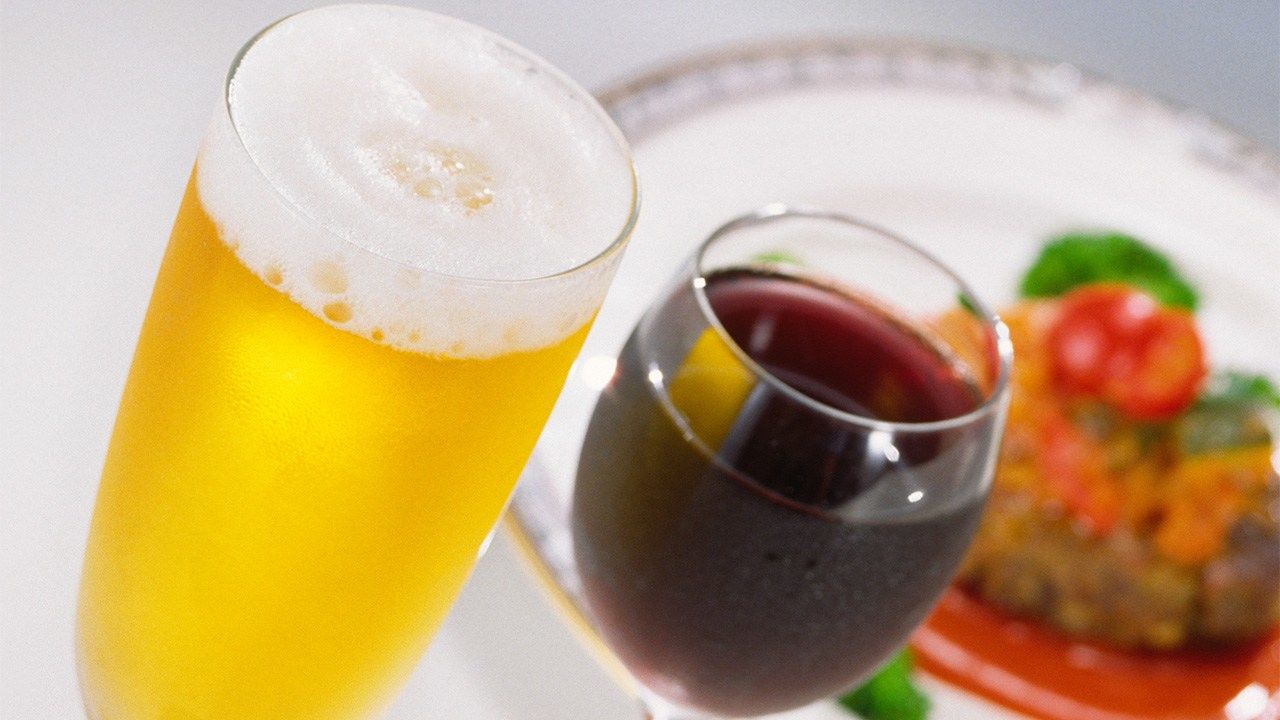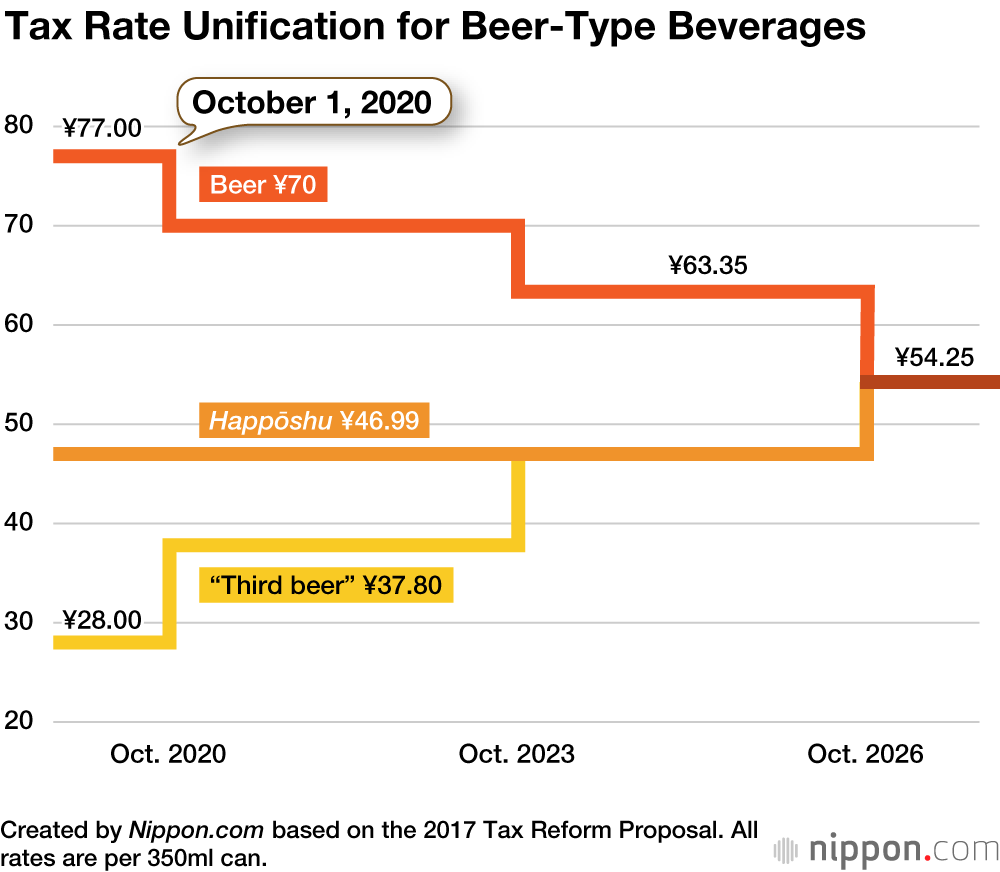
1. Japan moved one step closer to the unification of beer tax rates on October 1, 2020. October 2020 has brought changes to taxes and costs connected with living expenses in Japan. Tax increases and reductions for beer-related beverages are most likely to have an effect on household spending.
2. Regular beer faces competition in Japan from low-malthappōshu and the “third beer” segment, consisting of beer-flavored beverages containing no malt at all. These have benefited from lower taxes, allowing cheaper prices, but the tax rates are now being unified in stages.
3. While the tax on third beer products has risen by ¥9.8 for a 350ml can, it has dropped ¥7 for the same size can of regular beer. That might not have a large effect for occasional drinkers, but it will soon build up for regular tipplers.
4. It could be a painful change for those who love third-segment beer. Wine and other fermented fruit drinks see a rise in tax of ¥7.5 per 750ml bottle, while sake gets a reduction of ¥7.2 per 720ml (4 gō) bottle.
5. Japan Tobacco and other tobacco companies have announced that they are raising prices due to an increase in tobacco tax. The amount of price increase will depend on the brand, but indications are it will rise by around ¥50 a packet.
6. Meanwhile, the NHK reception fee has been reduced by ¥35 for terrestrial contracts and ¥60 for satellite contracts.
| Alcohol Tax Reductions | Sake, 720 ml (4 gō) bottle | -¥7.2 |
| Regular beer, 350ml can | -¥7 | |
| Alcohol Tax Increases | Third beer, 350ml can | +¥9.8 |
| Wine, 750ml bottle | +¥7.5 | |
| Tobacco Tax Increases | JT | +¥10–100 |
| Philip Morris | +¥20–50 | |
| BTA | +¥10–60 | |
| NHK Reductions | Terrestrial contract | -¥35 |
| Satellite contract | -¥60 |
Created by Nippon.com based on data from the National Tax Agency and various published materials
7. There are changes to COVID-19 pandemic stimulus subsidies too. Tokyo is now included in the “Go To Travel” campaign to boost demand in the struggling tourism industry. A separate promotional campaign for restaurants called “Go To Eat” has also begun.
8. Border measures are also partially relaxed, so dependent on certain conditions, newly immigrating mid-to-long-term residents, such as expatriates and international students who will remain for periods of 3 months or more, will be accepted again.



